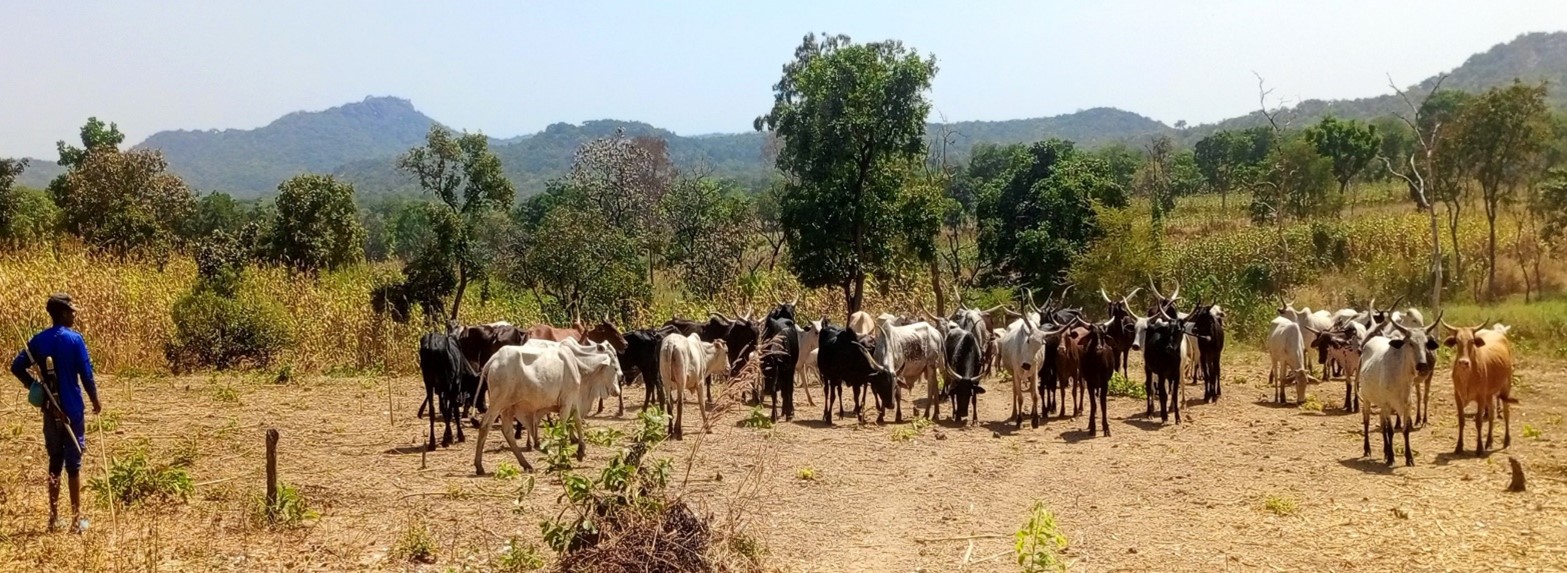Central African Republic and FAO to validate methane emissions report for the livestock sector
FAO and the Central African Republic to review methane emissions and mitigation strategies for livestock during a national workshop in Bangui

©FAO/ Guidagourou Athanase
The Food and Agriculture Organization of the United Nations (FAO), in collaboration with national authorities of the Central African Republic, is organizing a workshop to review and validate the findings of a recent FAO study on greenhouse gas emissions and mitigation strategies in the livestock sector of the Central African Republic. Taking place in Bangui on 3 and 4 June 20225, the event is part of the project “Delivering methane emission and mitigation assessments for the livestock sector,” implemented by FAO and funded by the Climate and Clean Air Coalition (CCAC).
A critical step in advancing livestock climate action
The Central African Republic has shown strong commitment to climate action, particularly through its nationally determined contribution (NDC), which prioritize adaptation and mitigation in the agricultural sector. Since joining the CCAC in 2013, the country has demonstrated its dedication to reducing short-lived climate pollutants.
As the country seeks to enhance its climate ambition, the livestock sector, which contributes significantly to rural livelihoods and represents 15 percent of the national gross domestic product, plays a pivotal role. Methane emissions from cattle through enteric fermentation and manure management remain substantial but under-addressed sources of greenhouse gases. To tackle this, FAO and partners are supporting the Central African Republic in developing Tier 2 methane emissions inventories and identifying mitigation options tailored to national contexts.
About the workshop
This workshop will bring together approximately 40 participants from across ministries (Ministry of Environment and Sustainable Development, and the Ministry of Livestock and Animal Health), the national statistics institute, academia, civil society, livestock organizations, and technical and financial partners. Building on the momentum generated from the kickoff event and the technical training on data collection and mitigation options organized by FAO in December 2024, this workshop will now allow national stakeholders to collectively review the results of the analysis and endorse key recommendations that support climate-resilient livestock systems in the Central African Republic. The workshop will also serve as a platform to reinforce coordination among stakeholders and identify next steps for low-emission development pathways in the cattle, goat, and sheep subsectors.
News: Fostering methane mitigation in the Central African Republic
Event: FAO workshop in Central African Republic
Publication: Methane emissions in livestock and rice systems
